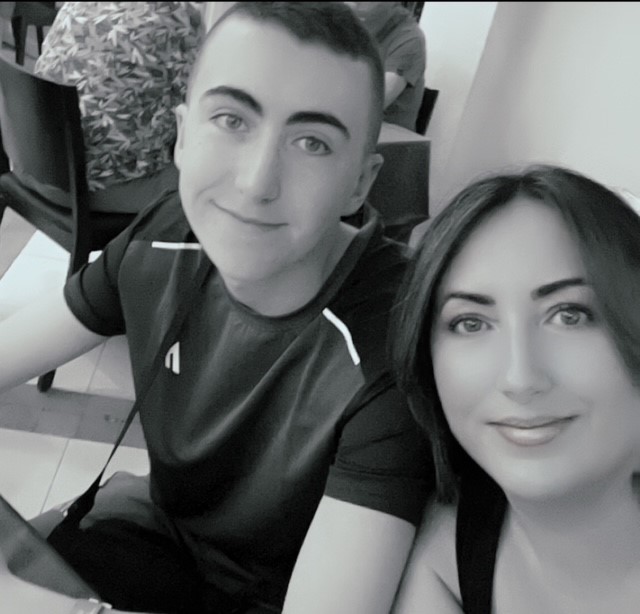Media Release: National treatment service welcomes new advice for children living with chest abnormality
A national treatment service has welcomed new advice that recommends a potentially life-changing treatment option for children and young people living with a chest abnormality.
The Scottish National Chest Wall Service says the advice, published today by Healthcare Improvement Scotland, gives children and young people living with a condition called pectus excavatum, an innovative treatment option that avoids surgery.
The condition results in a sunken chest, where the ribs and breastbone grow inwards. When the condition is severe, there can be problems related to the heart and lungs. People can be born with pectus excavatum or it can appear in young people following a growth spurt, typically between the age of 11 and 14 years. It is caused by an abnormal growth of the cartilage ribs that attach to the breastbone, resulting in the front of the chest having a sunken appearance.
The new advice, published by the Scottish Health Technologies Group, part of Healthcare Improvement Scotland, recommends a device – called the vacuum bell – should be available as a treatment option for young people who have a pectus excavatum that is negatively affecting their physical and emotional wellbeing.
The vacuum bell device is a flexible silicone suction cup that attaches to the chest and connects to a portable vacuum pump. A gentle vacuum is created and the suction brings the sternum forward.
Isla Lundie, Physiotherapy Lead at the Scottish National Chest Wall Service, hosted by the Royal Hospital for Children in Glasgow, sees patients from birth up to 16 years old. She said the new advice has the potential to benefit many children and young people living with the condition.
“We’re delighted that Healthcare Improvement Scotland has recommended the vacuum bell device. This will have a huge impact on children and young people living with pectus excavatum who thought surgery was their only treatment option.
“Pectus excavatum is a relatively unknown condition. We typically see around 90 to 100 children and young people a year and they all come to us through a referral from their GP or hospital doctor. We think there will be many more children and young people living with the condition who are not receiving the support and treatment they need.
“A lot of the patients we see are between the age of 12 and 16 years and the condition has a negative impact on their self-esteem and body confidence. Being able to wear the vacuum bell at home gives them the opportunity to undergo treatment without getting in the way of their daily life.
“We hope this new recommendation will raise awareness of this condition and encourage more people to seek treatment.”
Physiotherapy Lead at the Scottish National Chest Wall Service
Ryan Dolan, 15, from Renfrew, was diagnosed with pectus excavatum at the age of 12. His mum, Liza, said she was relieved when she found out Ryan could be treated with the vacuum bell at the Royal Hospital for Children as she wouldn’t have wanted to put him through the pain of surgery.
“Surgery for Ryan would have meant that metal bars would have been inserted into his chest. It sounds awful and I wouldn’t have wanted him to go through that. Having the option of the vacuum bell device was a game-changer. Ryan wears it at home while he’s gaming, and we’ve seen a huge difference since he began treatment 14-months ago. Ryan is really pleased with the results and we feel lucky that this treatment option was available to him.”
Her son was diagnosed with pectus excavatum at the age of 12
Neil Smart, Chair of the Scottish Health Technologies Group Council, said:
“Pectus excavatum can cause issues with self-esteem and depression, causing people to withdraw from activities that they would otherwise enjoy. In a small number of people with more severe symptoms, the chest wall can compress the heart and lungs, causing issues with cardiac and respiratory functions.
“We hope our latest advice will support healthcare professionals to refer people living with this condition for treatment that does not require surgery.”
Chair of the Scottish Health Technologies Group Council
The Scottish National Chest Wall Service also treats children and young people with pectus carinatum, also known as pigeon chest, a condition that causes a protrusion of the chest wall.
Healthcare Improvement Scotland’s published advice can be found here:
Vacuum bell device for the correction of pectus excavatum | Scottish Health Technologies Group
For more information on pectus excavatum and for images that represent pectus excavatum and the vacuum bell device, follow the links:
https://www.chestwallservice.scot.nhs.uk/vacuum-bell/
https://en.wikipedia.org/wiki/Pectus_excavatum
Ends
Notes to editor
Healthcare Improvement Scotland’s statutory role is to help improve the quality of health and care, provide information to the public about the quality of health and care services, monitor public involvement, and to evaluate and provide advice on the clinical and cost-effectiveness of medicines and health technologies.
Scottish Health Technologies Group (SHTG) provides advice on health technologies to support informed decision making that improves health and care for the people of Scotland.
The Scottish National Chest Wall Service is commissioned by the National Services Division (NSD) of NHS National Services Scotland. NSD works in partnership with the Scottish Government and NHS Scotland to commission highly specialist services that are delivered on a national basis.


